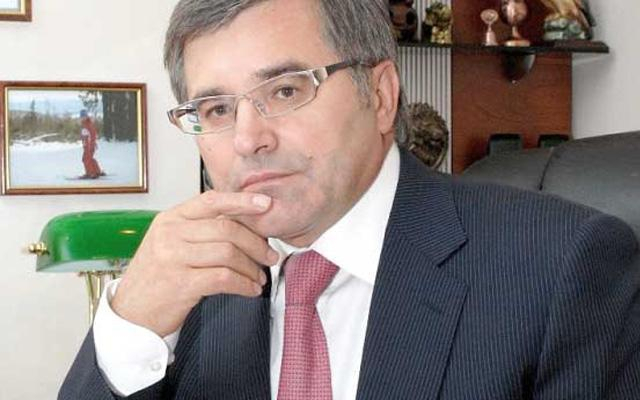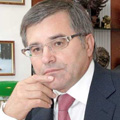
Home quote
Back in 1992, Ukraine was the first among the republics of the former USSR to adopt the Law “On the Bar”. The main achievement of the document was that it removed the advocacy from the sphere of influence of the Ministry of Justice and made it independent. Unfortunately, the following legislative changes gradually return the advocacy to dependence. It cannot be approved. I firmly believe that the new version of the Law "On the Bar and Advocacy" is not needed. This conviction is based on my personal long-term professional experience and extensive active participation in public associations of law firms.
Publications
New law on the Bar: return to dependence
Back in 1992 Ukraine was the first among the republics of the former USSR to adopt the Law “On the Bar”. The main achievement of the document was that it removed the advocacy from the sphere of influence of the Ministry of Justice and made it independent. Unfortunately, the following legislative changes gradually return the advocacy to dependence. It cannot be approved.
I firmly believe that the new version of the Law "On the Bar and Advocacy" is not needed. This conclusion is based on my personal long-term professional experience and extensive active participation in public associations of law firms.
The reverse process that can launch this draft law can be found, for example, in an unjustified emphasis placed on the concept of the region. Until now, the advocate formally belonged to the region where he received a certificate. The new version is different in terms of regionalism. It establishes an advocate`s place of work and imposes a bar self-government body to participate in, ignoring own wishes of the representatives of the advocacy community. Let’s say a lot of regional lawyers work in Kyiv, at the same time they are well aware of the specifics of their region, they are familiar and contact with other fellow colleagues-landsmen, but now they have to be automatically dissolved within Kyiv ranks.
This is wrong in terms of the ideology and spirit of the law, if we continue to talk about independence. “The place of seating determines the point of view”, as Russians say. The advocate must independently choose a self-government body, in which he agrees to participate. Moreover, the overwhelming majority of advocates are completely passive in terms of social activity. Their only thing connecting them with the region is the payment of contributions. By comparison, today in the Kyiv region there are about 7,000 advocates, and only 500-700 of them are active in public life. Now the coolest council will be the Kyiv one, even if there is the worst service for advocates, its members. That`s an excellent ground for internal strife and further escalation of conflicts with the central council around the leadership positions.
The desire to strengthen control over advocates is also evidenced by the provisions of the draft law on the possibility of bringing defenders to disciplinary responsibility for abuse of procedural rights. This is such an unexpected bonus in the hands of prosecutors and judges regarding the taming arrogant advocates. It is noteworthy that no safeguard has been proposed against this. As a result, even if the claims against the defender are groundless, but the judge satisfies the complaint and issues a separate decision, the advocate will still have to visit the disciplinary chamber, write an explanation, spend his time and nerves on this unnecessary thing.
An advocate with several clients cannot simultaneously represent their interests in different courts. But coincidence in court proceedings is not a legally valid reason.
Moreover, what is not a big secret, delaying and disrupting the litigation is a widespread advocacy tactic. However, its abuse can be significantly reduced by the improvement of procedural means alone, without punishment of advocates by disciplinary penalties.
Implementation of punitive ideas of the new draft law is dangerous: commitment to their principles and attentiveness of advocates may be included to the abuse of procedural rights, especially when challenging what the CPC prohibits to challenge.
So, let's say, according to Art. 55 of the Constitution of Ukraine, every citizen is guaranteed the right to judicial protection. However, despite the high standards of the Constitution, the CPC contains a list of certain issues that cannot be challenged in court. It turns out that an advocate who respects the Constitution and considers his natural duty to apply to the court in order to protect the violated law, immediately undergoes to the disciplinary responsibility.
I think this is done deliberately, not so much to discipline advocates, but rather to keep them in fear.
If to consider the proposed draft law № 9055 in terms of the novelty of some ideas, there are actually a few of them. Let’s say, regional chambers emerge, qualification and disciplinary commissions are split in two verticals. Yet these are not the changes that make the work of the bar self-government bodies better and more independent.
Certainly, some positive in this draft law can be found. This is a guarantee to practice law, also it`s a very well-written principle of advocate secrets protection, the role of the council and the representation of the interests of an advocate during a search with their rights and procedural opportunities.
Of course, it is important that, according to the new draft law, more rights and opportunities are granted to the regions. That makes sense, since the regions are closer to the existing problems and operational intervention to resolve them more effectively. Now the decisions of the regional bar council cannot be canceled by the central advocacy institution, although it reserves the right to handle complaints against such decisions. A well-known burden was withdrawn from the regions in the form of so-called quotas, which meant that in order to hold a conference, we had to wait for the decision of the Bar Council of Ukraine and hold a lot of minor gatherings. Holding conferences and making decisions, indeed, will become easier.
However, all this upgrade could be introduced in a very simple way - to amend the current law, as well as the Criminal Procedural Code.
But for some reason they decided to develop a new law. I suspect that there are certain interests in it. Let's say the change in structure makes it possible for regional leaders to hold office for two years, because there is a new body of bar self-government - a regional chamber. Thus, the impression is that someone lobbies for the extension of power.
Article 28 of the draft law, which caused the biggest reaction due to its provisions that the advocate is prohibited from combining work under an employment contract and advocacy, in my opinion, is more designed to solve the problems of advocates working in state bodies and enterprises. The reason is not to refute the principle of advocacy monopoly by their work. This principle is dominant, and people will have to choose.
I will not say whether it is good or bad. I see such a logic: if we say that the advocacy is an independent, self-sufficient professional activity, then it should be that way. And when it comes to labor relations - it's very difficult to talk about independence.
The procedure for access to profession is also issued for obvious reasons. Even before the draft law came to light, all the representatives of the prosecutor's office, as well as general, including the police, had already known the main points in advance, and, along with their high-ranking officials, they applied for obtaining the advocates' certificates.
They can be understood. First, the status of an advocate gives certain guarantees of inviolability. Second, it is provided for all your life. Today you work, and tomorrow for various reasons you can be dismissed from law enforcement agencies. Where will these people be able to professionally implement themselves in the future? Of course, first of all, in advocacy. Because these professions are close in the spirit.
In addition, the instability of the law enforcement system, obviously, contributes to such behavior. A person who understands that everything in its life will be good and the state will not allow injustice, will not seek a lifejacket just in case.
In general, access to the profession will be dramatically changed, and will be completely different from the one that exists now. Today's access to the profession of advocate has not only a corruption component, but a very huge corruption component. But we must understand that the model being laid is very risky. If today the acceptance of exams is scattered across all regions, then according to the project, it will be concentrated practically in the hands of the Higher Qualification Bar Commission.
It is strange that the draftsmen did not imagine that it will be an overflow. They did not see the difference between advocates and judges, and they made an analogy. However, for judges there are clearly defined places of work and the number of vacant positions. It is not possible for advocates to do this, and even difficult to predict. The overflow of those who wish to become advocates can paralyze the work of the commission.
Second, we already know that as soon as everything concentrates in one's hands, these hands do all kinds of stuff! Speaking about the prospects of adopting this draft law, today only Kyiv advocates, headed by Inna Rafalska, stand for this. The rest of the bar whether against, or just keeping their mouths shut. I think the parliament cannot ignore this, because it offers the law for the professional environment, and it does not accept it. People's deputies, first of all, should ask themselves: why? why are bees against honey?
The blog by Petro Boyko is published on censor.net website

Petro Boyko
the Head of the Bar Council of Kyiv Oblast
Other publications author
Publications

Ihor Kolesnykov A BRIEF SUMMARY REGARDING THE APPLICATION OF THE ORDER ON EXTENDED CONFISCATION IN LATVIA REGARDING FINANCIAL ASSETS OF…

Valentyn Gvozdiy WORKING IN A WAR ZONE

Lydia Izovitova Formula of perfection

Sergiy Vylkov Our judicial system is so built that courts do not trust advocates

Iryna Vasylyk Advocacy in the proclamation of Independence of Ukraine

Oleksandr DULSKY When we cross the border of the Supreme Anti-Corruption Court, we get into another department of the National Anti-Corruption…

Vadym Krasnyk The UNBA will work, and all obstacles and restrictions are only temporary inconveniences

Lydia Izovitova Interview with Lydia Izovitova on the occasion of the 8th anniversary of the founding of UNBA: We are the voice of t…
